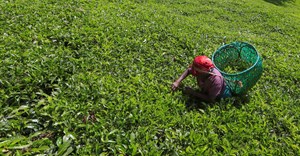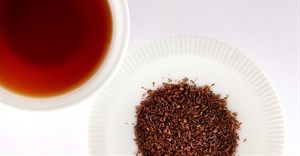Tea-growers 'should market themselves' - FAO

The UN agency warned against increasing the size of tea plantations, which would damage prices in the long run.
Exports expected to grow
In a report published online this week, FAO also said that the export market in green tea will grow more quickly over the next 10 years than that of black tea, where the markets in major importing countries are unlikely to expand further as they are already nearly saturated.
"Scope for expansion in consumption in traditional import markets like the United Kingdom and Russia is quite limited but in the countries where tea is produced the per capita consumption is much lower and so there is a lot more market potential," said Kaison Chang, Secretary of FAO's Inter-Governmental Group on Tea, the only international tea authority.
Great opportunity
Consumers in tea-producing countries drink just a tenth of the amount of tea than those in mature import markets, representing a major opportunity for tea-growers if the right marketing strategies are employed, said the FAO report.

The FAO Composite Price for tea, the indicative world price for black tea, increased by 13% in 2009, pushing prices to record levels last year due to drought in some of the major tea-producing regions of Asia and Africa.
Prices have now stabilised as weather patterns return to normal.
The effect of this price increase on the consumer in developed countries was just 5% in 2009 because of intense competition in the beverages market.
In developing countries retail tea prices rose 12% during the same period. World black tea exports are projected to grow by 1.8% between now and 2019.
Green tea exports are expected to grow as much as 5.5% per year.
China is the world's largest tea exporter, followed by Kenya, Sri Lanka and India.
Food security contributor
"Tea can be an important contributing factor to a nation's food security," said Chang. "In Kenya for example, receipts from tea exports covers the country's entire food import bill."
Earnings from tea exports account for about 35% of total agricultural export receipts in Kenya and constituted 50% of agricultural export revenue in the next largest tea producer, Sri Lanka, covering around 60% of food imports.
The increase in the FAO Tea Composite Price in 2009 translated to a 7% increase in export earnings at the global level, significantly affecting rural incomes and household food security in tea producing countries, FAO said.
Black tea accounted for 65% of total tea production over the past five years, 67% of consumption and 80% of trade.
The acceptance of the health benefits of green tea over the past few years in developed countries has helped exports.
Source: I-Net Bridge

For more than two decades, I-Net Bridge has been one of South Africa’s preferred electronic providers of innovative solutions, data of the highest calibre, reliable platforms and excellent supporting systems. Our products include workstations, web applications and data feeds packaged with in-depth news and powerful analytical tools empowering clients to make meaningful decisions.
We pride ourselves on our wide variety of in-house skills, encompassing multiple platforms and applications. These skills enable us to not only function as a first class facility, but also design, implement and support all our client needs at a level that confirms I-Net Bridge a leader in its field.
Go to: http://www.inet.co.za








